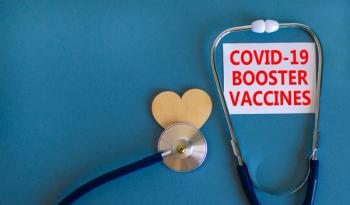
- MHE December 2021
- Volume 31
- Issue 12
Is Cancer Screening Getting Back to Normal?
Screening dipped sharply in 2020 because of the pandemic. The rebound this year is uneven and there is still hesitancy.
During the pandemic, screenings fell significantly for just about all types of cancer as COVID-19 cases surged. RAND documented the dip in a study using a database that includes 6.8 million people covered by employer-sponsored research. Between March and June of 2018, 60,344 people were screened and 2,961 cancers detected. During that same period in 2020, 15,453 patients were screened and 1,985 cancers were detected.
According to the American Cancer Society (ACS), healthcare staff and resources were reallocated to address the priority needs of the pandemic. Additionally, patients were afraid to visit the doctor or go into a treatment center, worrying that they might contract COVID-19 — especially patients who were immunocompromised. Many patients postponed routine wellness exams, an ideal opportunity to discuss and address cancer screenings. ACS also found that financial and job insecurity during the pandemic factored into the decline in cancer screenings. Some patients lost their jobs and health insurance or were financially insecure and therefore hesitant to see the doctor because of potential costs.
Richard R. Barakat, M.D., physician-in-chief and director of the Northwell Health Cancer Institute in New York, says the National Cancer Institute modeling branch predicts a 1% increase in deaths through 2030 and 10,000 additional deaths due to breast and colon cancer because of the decrease in screenings.
Uneven rebound
As people began getting vaccinated, the numbers of those getting cancer screenings in 2021 increased significantly, although not always to pre-pandemic levels. Barakat says screening rates were mostly back to normal this fall as the number of people vaccinated against increased and infection rates decreased. “Most (screenings) have returned to normal, but colonoscopy lags behind perhaps because it’s an invasive procedure,” he says. Barakat also says it is worrisome that the rebound in mammography rates among Black and Latino women is lagging behind the rate for White women, a gap that may accentuate existing racial disparities in cancer screening.
When Cardinal Health Specialty Solutions surveyed oncologists in early 2020, the responses indicated that cancer screening had decreased by 90%, according to Bruce Feinberg, D.O., its chief medical officer. A survey this summer found that 70% of oncologists reported that patients were still postponing screening.
Cheryl Stanski, M.D., FACS, chief medical director of outreach for Holston Medical Group, a 230-provider group in Kingsport, Tennessee, believes things are slowly returning to normal. “Patients understand that we’re in a ‘new normal’ and healthcare must continue,” she says. “We aren’t at pre-pandemic levels, but we’re looking at surpassing the number of patients screened and diagnosed compared to 2020, which is hopeful. I believe people have accepted that COVID-19 is not going away and it’s important to ensure we continue our health journey, and lives overall, in the best way possible.”
Stanski says the screening numbers are lower than they were before the pandemic but are edging closer. The shutdowns and general retreat from healthcare during the first few months of the pandemic created a backlog of screenings that Holston and other providers are working through, she says. But many people are still reluctant to get in-person care. Stanski says the group has sought out patients who are already experiencing potential symptoms of cancer to prioritize screenings and diagnosis as early as possible. “By strategically reaching out to those patients, our 2021 diagnoses (326 breast cancer diagnoses and 112 colon cancer diagnoses) are close to surpassing our 2020 numbers and give us hope we’re returning to normal screening rates,” Stanski says.
Prior to the pandemic, many community-based cancer programs in the Karmanos Cancer Network in Detroit sponsored screening events, which typically attracted those without primary care providers to schedule screenings, as well as the underinsured. “Unfortunately, like most providers across the country, after the onset of the pandemic we had to make the decision to cancel all community cancer screening events, and that continued for seven months,” says Lauren Lawrence, vice president of the network.
In June 2020, after the initial surge in Michigan, the ACS assembled a Cancer Screening Task Force, which included healthcare leaders from across the state. The task force developed a campaign to educate the public that it was safe to come back to healthcare facilities for screenings by promoting the message “Cancer does not wait for COVID.” Lawrence said relatively small numbers of people have taken advantage of prostate and breast screening events in rural Michigan. “Despite the minimal turnout, it was a sign people were beginning to respond to our cancer screening campaigns and focus on their personal healthcare needs.”
In March 2021, Karmanos held three colorectal screening events and one prostate screening event in that same rural region emphasizing screening protocols and distancing requirements. “We had more than 500 participants this time,” Lawrence says. “Cancer screenings are trending upward but are not back to pre-COVID levels and we continue to experience dips when we encounter surges in COVID volumes.”
Michael Zinner, M.D., CEO and executive medical director of the Miami Cancer Institute at Baptist Health South Florida, says the number of people getting screened for cancer has increased. He is worried, though, that “we won’t be able to catch up fast enough.” Zinner says a large part of the patient population is still hesitant about getting screened. That hesitancy is part of an overall reluctance to return to physicians for routine care.
Long-term consequences
There are overdiagnosis and overtreatment in cancer, so the dip in screening may have spared some people tests and treatment that aren’t necessary and even harmful. On the other hand, oncologists are bracing themselves for a pandemic cohort of patients with later-stage cancers who will have presumably worse outcomes than if they had been screened and their cancers perhaps diagnosed at an earlier, more treatable stage. The decrease in screenings over the past 18 months, in Stanski’s experience, has already resulted in some cancers being diagnosed at a later stage. She says one of her patients with breast cancer noticed a lump in early 2020 when the pandemic began but did not seek care until this year. “Because of the delay in diagnosis and treatment, the cancer is much larger and has spread,” she says. “It has become more difficult to treat and may be impossible to cure. With later diagnoses, patients need more aggressive treatments. These often have heavier costs, compared with preventive procedures, as well as more severe health complications and risk of loss of life.”
“Screenings allow a medical provider to identify cancer in its early stages,” says Timothy Quinn, M.D., a high-profile family physician in the Jackson, Mississippi, area who is interviewed often on local news programs and serves on city health organizations. Although the Delta variant caused patients to delay their wellness exams again, Quinn says patients are rescheduling and coming back into the office for their visits, including screenings, at a greater rate.
“As COVID-19 infection rates decline, we can anticipate that wellness visits will increase,” he says. “COVID-19 has been unpredictable; however, with the recent advancements and updates in boosters and potential treatments, patients seem more confident to get their wellness back on track.”
Keith Loria is a freelance writer in the Washington, D.C., area.
Articles in this issue
about 4 years ago
Oral and Dental Health is Crucial. But Access to Coverage is Spotty.about 4 years ago
Digital Therapeutics Shaping the Future of Careabout 4 years ago
Health Insurance Markets Are Concentrated — and Getting More Soabout 4 years ago
It’s Steady as She Goes in Employer-Based Health Insuranceabout 4 years ago
Value-Based Care in Oncology Gets off to Shaky Startabout 4 years ago
NSCLC Therapy is Increasingly TargetedNewsletter
Get the latest industry news, event updates, and more from Managed healthcare Executive.























